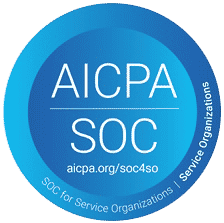Anyone who has ever toiled in over-preparing employees’ work schedules has experienced the frustrating effect of a version of that old military saying: no plan survives first contact with reality. Someone calls in sick. The employee has special certifications. You check your volunteer list and begin the quest to plug the hole in your work schedule. Your system is paper-based or relies on disconnected workforce management software and you must dig deep.
A simple mistake or weakness in your system could cause overlooking an employee who recently upgraded their qualifications, or worse yet – assign an employee to an assignment they are unqualified for. Finally, in the interest of getting the job done, you make an arbitrary work assignment decision, where the inconvenienced employee has no choice but to show up, register a complaint with management/union representation or eventually resign. Frustration and impatience are the byproducts of an outdated scheduling system.
So, scheduling problems can be multiplied exponentially at large manufacturing, energy, and public service organizations. There also may be multiple locations and union collective bargaining agreements in the mix.
Then there are the wildcards of annual vacation planning, tracking employee fatigue, and paper-intensive scheduling that distracts managers from the true business the organization must accomplish in meeting the goals of their workforce management system. The organization might rely on outdated, fragmented, or siloed data ranging from broad and deep Excel spreadsheets to disconnected financial management technology.
Predictive Scheduling Laws Complicate the Job
There are predictive scheduling laws in effect in larger municipalities of a few states. In Chicago, for example, the city’s Fair Workweek Ordinance covers building services, healthcare providers, hotels, and manufacturers, as well.
Eight other states—Connecticut, Illinois, Maine, Michigan, Minnesota, New Jersey, North Carolina, and Rhode Island–are considering passing predictive scheduling laws. On the other hand, Arkansas, Georgia, Iowa, and Tennessee currently prohibit or limit the effect of predictive scheduling laws beyond what is required by federal laws.
What Predictive Scheduling Laws Require
The National Law Review’s description of Predictive Scheduling is as good as any:
“Predictive scheduling laws require employers to give employees adequate notice of when they will work so that they can plan for and around their work shifts…. The laws generally require employers to provide a certain amount of notice of schedule and impose premiums for last-minute schedule changes.”
Predictive scheduling laws require employers to provide extra hourly pay when employee schedules are changed without advance notice. Specifically, the laws require:
- advance notice of work schedules, typically, at least 14 days—Schedules must be “good-faith” estimates of the employees’ work hours. Any changes require similar advance notice, and the schedule must be given to the employee before or on the employees’ first day of work.
- when a new employee is hired, an estimate in writing of the employee’s anticipated work schedule at the time of hire
- in the absence of sufficient advance notice of a work schedule cancellation or other change, the employer must provide “predictability pay”—in some jurisdictions half the hourly rate for the number of hours cancelled
- approved exceptions to the predictability pay regulations; e.g., natural disaster or conditions beyond the control of the employer
- an employee has a right to rest between shifts and cannot be required to close up at night and open the next day and additional pay for working shifts that are close in time
- offering additional hours to current part-time employees before taking on a new employee
- posting schedules in a location accessible to all employees
- documentation with standards for document retention; i.e., for work schedules, schedule estimates, proof of predictability pay, and documents showing offers of additional hours
Complying with Predictive Scheduling Law/Guidelines
The first step is to determine if your organization is a “covered employer.” Covered employers should then create policies and forms that refer to and comply with the applicable law. For example:
- a template work schedule
- notice of change in work schedule
- notice of offer of additional hours
- estimate of work schedule and hours
Next, leadership within the organization must be trained on the applicable laws. These representatives of your company are key to ensuring compliance and range from departmental management to direct employee supervision. Compliance should also include provisions for auditing where employers periodically institute internal checks to ensure the system is working and adequately documented.
Handling Labor Scheduling Compliance in the Digital Age Through Automated Employee Scheduling
Whether covered—or about to be governed–by predictive scheduling, or voluntarily gaining control of your employee scheduling, you can use technology to predict staffing needs through automated solutions. Those solutions save time, money, and avoid sanctions and turmoil. They include:
- Employee Automated Scheduling to meet your staffing needs and comply with rule driven automation including key compliance considerations and union rules
- Absence Management to ensure gaps are filled with qualified employees and avoid excess labor costs due to overscheduling of replacements
- Mobile Engagement to include employees in scheduling decisions with an app that provides employee input, shift swapping, and a sense of cooperation and partnership between workers and management
- Smart Backfill for fair work scheduling and filling work slots with qualified employees
- Fatigue Management to promote worker and plant safety and comply with government agency fatigue prevention rules, as well as streamlining reporting requirements
- Annual Vacation Planning for a standardized system of employee time-off requests with transparent leave balance displays and equitable distribution of employees’ vacations throughout the year.
Each of those automated features are part of Indeavor’s enterprise scheduling solutions package. Contact us if you have a question, or give us a call at 1-800-416-9006.








